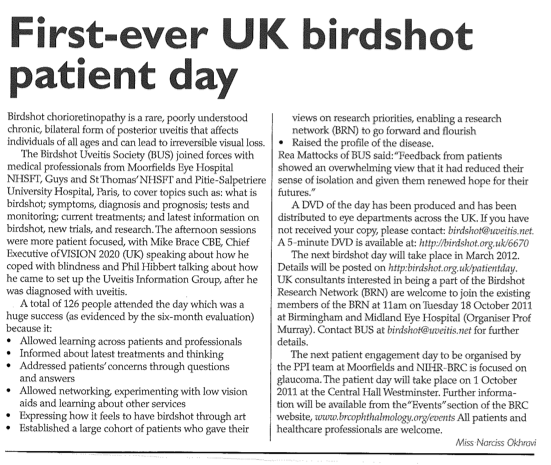Birdshot Uveitis Society supporters raised £118.43
with easyfundraising & easysearch!
There are 13 of us signed up raising money via Easy Fundraising and we have just received a cheque for £37.68 for doing our on-line shopping via the Easy Fundraising website. This brings the total raised since we signed up about a year ago to £118.43.
We’d like to thank the people who have decided to help us via Easy Fundraising. It’s simple, painless and it doesn’t cost you a penny more than you would otherwise be spending on yourself and your friends and families, especially at this time of year when you are Christmas shopping.
The Easy Fundraising site is an excellent, easy, on-line way to help raise money for future research and Birdshot days, while you do your normal on-line Christmas shopping and it doesn’t cost you anything extra. Retailers such as Amazon, Next, Argos, John Lewis, Comet, iTunes, eBay, M&S and HMV, Clarkes all give money when you shop-online via Easy-Fundraising. You shop directly with the retailer as you would normally do, but if you sign up to http://www.easyfundraising.org.uk/bus for free and use the links on the easyfundraising site to take you to the retailer before you shop, then a percentage of whatever you spend comes directly to us at no extra cost to yourself. This service is FREE to use and will give you access to hundreds of exclusive discounts and voucher codes, so not only will you be helping us while you buy your Christmas presents, you will also help to save money yourself
